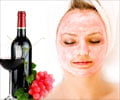Researchers had claimed yesterday that age related deafness, and hearing loss caused by loud noise, may be reduced by the antioxidants in red wine, green tea and aspirin.
Explaining that moderate amounts of red wine or aspirin could help slow the development of age-related deafness, the researchers suggested that the compounds they contain could help protect the delicate hairs of the inner ear that are vital to hearing. Scientists are suggesting that red wine may supply antioxidants that protect the delicate hairs of the inner ear that are essential for hearing.According to an article in New Scientist magazine by Andy Coghlan, destructive chemical agents called oxygen-free radicals, produced by normal cellular processes and in response to loud noise and exposure to powerful antibiotics, can damage the hairs. But he explained that the antioxidants such as resveratrol, found in red wine and green tea, and salicylate, the active ingredient in aspirin, should be able to neutralise the free radicals.
To put this theory to test Jochen Schacht of the University of Michigan Medical School and colleagues tried using salicylate to prevent hair cell damage in patients' ears caused by the antibiotic gentamicin. Gentamicin they explained is often used to treat severe, acute ear infections but it can damage hair cells in the process. They found that hearing loss had affected just 3% of patients who were given gentamicin plus aspirin for acute ear infections compared with 13% treated with gentamicin plus a placebo.
Jochen Schacht while presenting his findings at an ear conference at University College London stated that this meant a 75% reduction in toxicity to the ear. Although there is no direct evidence that upping dietary antioxidants such as moderate amounts of red wine prevents human hearing loss, Schacht explained that rats kept on restricted diets had less age-related hearing loss than rats on normal diets.
Stating that this evidence suggested that a similar effect could be achieved by including more antioxidant rich foods in the diet, Schacht added, "I wouldn't say it is proof for antioxidants, the jury's still out on that. But it certainly can't hurt to increase the amount of green vegetables, red wine or green tea that you consume."









